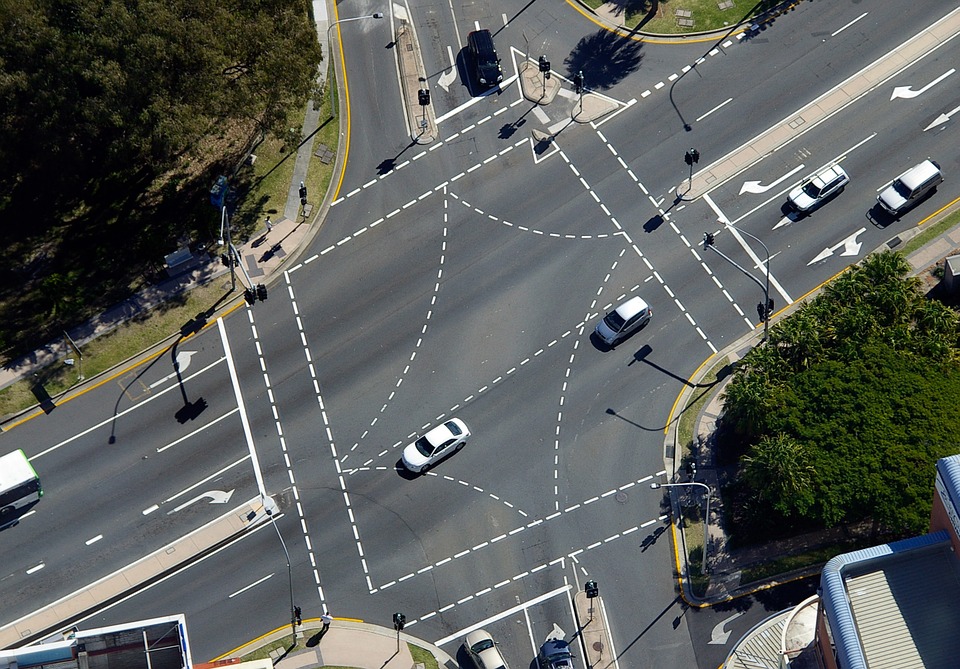
Flock Automotive Experience
Flock is the only Marketing Transformation Consultancy that, over the last two years, has worked with 6 of the largest Car Manufacturers in the world including Ford, Toyota, Lexus, Honda, VW Group and Mazda.
Our services span across organisation design, agency eco-systems, ways of working, mar- tech and capabilities. Flock is founded by world-class global marketing leaders who design marketing transformation solutions; getting you better and more marketing for less money.
We understand the issues affecting your industry such as Connected Customer Experience, Electric Vehicles, Mobility, and Retail Models – so the need to transform is evident.
The Automotive Industry In 2019
It looks as if the party in the automotive industry is over. Whilst the last couple of years have seen some strong growth, 2018 seems to have marked a turning point, with automotive sales expected to fall slightly this year.
The experts are in debate, with investment bank Morgan Stanley expecting global auto sales to slip 0.3% to 82.1 million in 2019. Whereas the Center for Automotive Research in Duisberg-Essen, Germany, puts 2019 sales slightly higher at 82.9 million.
One thing is for sure; there are many looming challenges facing the industry. Declining Diesel sales, Brexit, changing consumer behaviour and an economic downturn in China – it will be a tough year!
China
Let’s look over to the East first. Trump’s on and off trade-war with the Chinese certainly doesn’t help, not to mention the fact that car ownership has reached a saturation point. There is a growing second-hand car market, there’s been an improvement in public transport and an increasing popularity of car-sharing services, making consumers in China think twice about the high investment and commitment of buying a new car – according to analysts at the Financial Times.
And the sales figures are alarming: most car manufacturers, mainly in the premium segment, have counted on the year-on-year growth to continue in double digits, but this is not happening anymore. For the first time in a long time, sales of passenger vehicles in 2018 were down by 4.1% totalling 23.8m. This dramatically underlines that the source of crucial profits for the automotive industry looks like it has dried up.
On the positive side, the 1.3m electric and hybrid cars that were sold by China last year, is up 62% on 2017 (The Sunday Times). Good for those with a strong product offering in this segment.
Diesel Sales
The European love affair with diesel engines has come to an end, and it’s an ugly break-up so far. One can argue that it started with the VW Diesel scandal, but it’s got a lot worse as public perception of diesel engines is now at an all-time low. Diesel is seen as a “dirty” technology, which has been worsened by governments penalising diesel owners with higher parking costs, higher tax, and even banning some diesel cars from our streets. “The biggest challenge for the automotive industry will be to cope with mega cities car policies, as opposed to national policies. They are much faster than what the industry can cope with”, as one Automotive Executive shared in a conversation with Flock.
No wonder demand for diesel fell in 20 of the 27 European countries according to an article in autocar. This decline is headed by a 30% decline in the UK, with 5.59 million registrations in 2018. That’s a decline of 18% from 2017, when 6.76 million diesel cars were registered. Diesel cars account for 35% of the total European car market, the lowest level since 2001.
Brexit: What it Means for the European Auto Industry
Unfortunately, Brexit must feature in this story, but rather than talking about politics, let’s look at the pure facts (for once):
- UK Automotive Turnover: £82 billion
- In 2017 the UK Automotive manufacturing industry exported products worth £44 billion, accounting for 12.8% of the UK’s total export goods (Source: SMMT Motor Industry Facts 2018)
- 8 out of 10 passenger cars made in the United Kingdom are exported (Source: SMMT Motor Industry Facts 2018)
- In total, the automotive industry employs some 856,000 people across the United Kingdom. The sector adds £20.2 billion in value to the UK economy – 2017 (Source: ACEA – Brexit and the Auto Industry: Facts and Figures)
It is sad to see that the recent success stories, such as JLR’s, are turning into a nightmare with factories closing, reduced shifts, and jobs lost.
Whilst this sounds like a UK specific problem, this is also a threat for the European automotive industry.
Future of Mobility
The big carmakers will have to act fast if they want to retain their future customers. Some must think hard about the business model of the future, such as sharing to finance the cost of electric cars, the potential of autonomous cars,and the new forms of mobility needed, especially with the likes of Google, Apple and other cash rich tech companies moving in and threatening to change the status quo of the industry.C
Connected Cars
It seems strange that this trend has only recently emerged, considering we have lived for quite a while now, in a connected, always on, screen dominated world. A couple of years ago it seemed that the only place without Wi-Fi, was in your car.
Vehicle infotainment systems are centre stage of some of the latest car campaigns, highlighting their entertainment and connected car capabilities. According to Juniper Research, in-car infotainment systems will be worth $600 million over the next four years. McKinsey predict that Vehicle data, spun off by surging vehicle connectivity, will be critical for generating revenue, reducing costs, and increasing safety, and could represent a value pool of up to $750 billion by 2030. This theme coincides with a trend Gartner L2 has observed; the growing importance of mobile connectivity in vehicles, as a key criterion in the car purchase process.
What Does This Mean for Automotive Marketeers?
Connected Consumer Experiences
How consumers connect and interact with brands has changed dramatically. For automotive brands to be part of the consumer’s world, marketeers have to think about evolving the marketing model by having data and better-connected consumer experiences at the core. This will allow brands to be where the consumer is, talk with them rather than just to them, and react and interact with what is relevant at that moment.
New Agency Ecosystems
Downward changing sales figures could mean that the agency eco-system, grown exponentially over the last couple of years during the economic upturn in the industry, is no longer fit for purpose and a different, leaner model is needed. 2018 has seen some major shifts in the automotive advertising landscape with Daimler moving to Publicis Emil and Ford changing their agency ecosystem by appointing BBDO as the global lead agency for brand and Omnichannel. In another mega pitch, Volkswagen have reduced its global network from about 40 agency partners to three creative leads: WPP in North America, Omnicom in Europe and South America and Cheil in China. VW has retained Omnicom’s Adam & Eve/DDB in the UK.
Purchase Habits
A third of consumers spend less than a month reviewing their vehicle options before making a decision. In fact, 70% spend less than three months, suggesting that brands have a relatively short time to engage with consumers and influence their purchase decisions. Looking more closely at the customer journey and which marketing channels have the most impact on purchase decisions, 31% of consumers agreed that the manufacturer website had a significant impact on choice of vehicle, followed closely by family and friends (30%). Only 15% of consumers viewed third-party websites as having a significant impact on vehicle purchase decision, however of the 15% who did use them, 35% found the service very/extremely useful (Source: Deloitte-uk-2018-uk-auto-consumer-study).
Hyundai’s 2019 Super Bowl ad highlighted the new way of shopping for a car. One day buying a car completely online will be the new norm – and who knows, this may be a lot sooner than we think.
Here are key questions to consider
- Do you have the right teams in place to deliver this shift in connected consumer experiences? Have you considered a capabilities assessment?
- Are you able to connect with consumers in an agile and meaningful way?
- Do you have a process in place, with clearly defined roles and responsibilities, to allow your teams to work in a collaborative and efficient way?
- Do you have a Marketing Operations function in place to ensure integrated ways of working?
- Personalised messaging data, based on a user’s journey, needs to be brought together and managed alongside customer data – do you have the right technology in place to do so?
- With the change in consumer behaviour, have you thought about how you would structure and contract for the most efficient agency ecosystem?
- Do you have a connected remuneration model across your ecosystem that drives your business targets but rewards for innovation and performance?
At Flock, Marketing Transformation consultants work with you to deliver solutions across core marketing disciplines: Marketing Capabilities; Marketing Operations; Marketing Procurement and Marketing Technology- the key tenets that will transform the way you deliver marketing.



